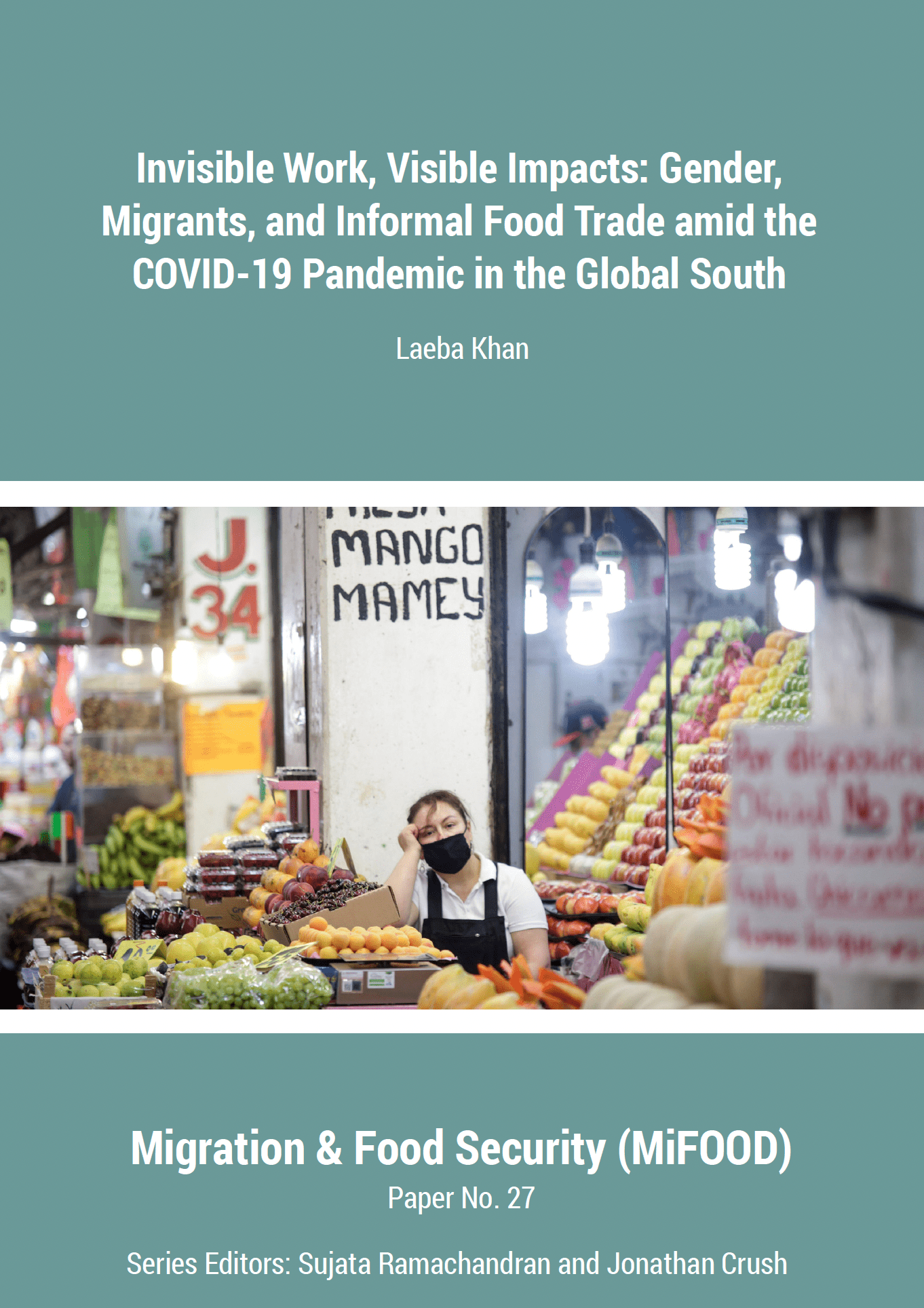This paper examines the abrupt and far-reaching consequences of the COVID-19 pandemic on women engaged in the informal food sector within the Global South. It highlights the deepening effects of the pandemic on food insecurity, gender inequality, and economic disparities. Based on a case study of three groups of women – internal migrants, international migrants, and cross-border traders – engaged in informal food work within and across countries and regions of the Global South, the paper investigates the compounded challenges they face, as well as their exacerbated risks and vulnerabilities. The analysis exposes the complex interplay between gender, migration, and food security through the pandemic. The results also reveal significant gaps in government responses during the pandemic in addressing the specific needs of women in general and female migrant workers in the informal food sector more specifically. By recognizing the important contributions of women and women migrants to food security, the paper makes a case for stronger efforts to support these informal enterprises.

